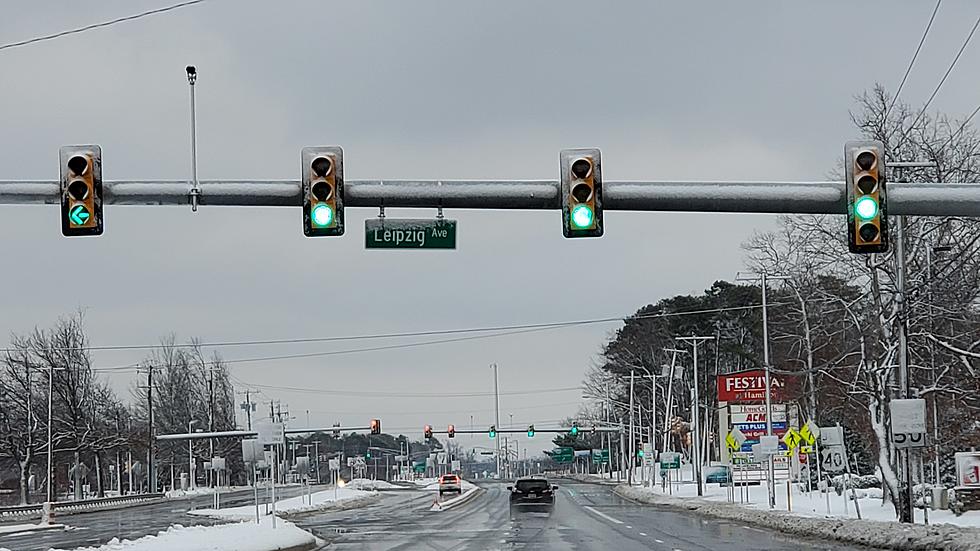
Winter Road Salt, Brine, Trucks in Good Supply, NJ Officials Say
We've asked the question before and are posing it to the New Jersey Department of Transportation again as the winter approaches: will there be enough salt and brine available to get the Garden State through the season?
Last winter, the context was supply chain disruptions and staffing shortages. Now, it's inflation.
Chris Feinthel, NJDOT senior director of operations, told New Jersey 101.5 that hauling or delivery costs have indeed increased this year, but the bump in prices of actual materials has been nominal.
So the agency is at full capacity for road salt as the holiday season beckons. That amounts to some 335,000 tons.

"That would allow us to fight 18 statewide, average snowstorms, and what an average snowstorm for us would be, would be a 24-hour continuous plowing event," Feinthel said.
Feinthel grants that not every winter storm is created the same, and the season seems to be going deeper and deeper into March every year.
But because, as we've also reported in the past, NJDOT spends months preparing to be "winter-ready," he feels they are in a good spot.
"We don't like to let our salt capacity dip below 80%, especially early on in the year, because we never know what the future holds for us, and the season can be long," Feinthel said.
The winter team works close to 365 days a year, Feinthel said, and that actually applies to its trucks as well.
In warmer times, the 730 trucks that make up the DOT fleet are used for various activities around the state, but in the winter, they are dedicated to snow and ice control.
"We worked all summer and all fall to get us to this point, and we are ready for whatever winter brings us," Feinthel said.
In the event of a light winter in terms of snowfall, Feinthel said excess salt can be held in reserve for about five years.
It's not that it goes bad, he said, but as storage facilities are outdoors and exposed to the elements to some degree, old stock has the potential to cause harm to trucks and other equipment.
"If left, we find at that five-year mark, things start to harden, they calcify a little bit. The salt just becomes difficult to use for our purposes," Feinthel said.
One final PSA from the DOT: Motorists should stay home if they can during a snowstorm, but if they must drive, give road crews room to work and slow down when passing.
The 99 top paying jobs in New Jersey
More From WPG Talk Radio 95.5 FM










